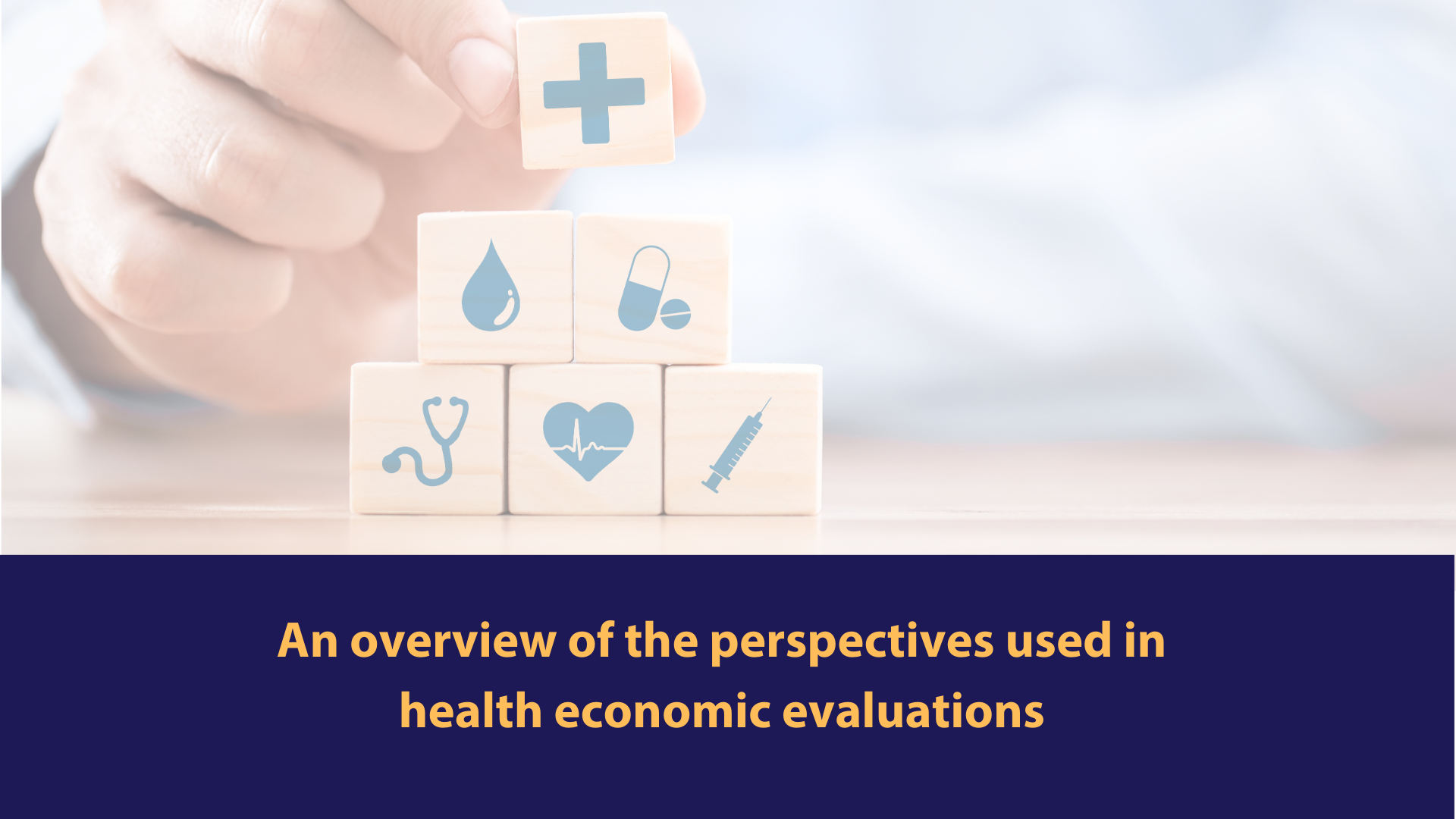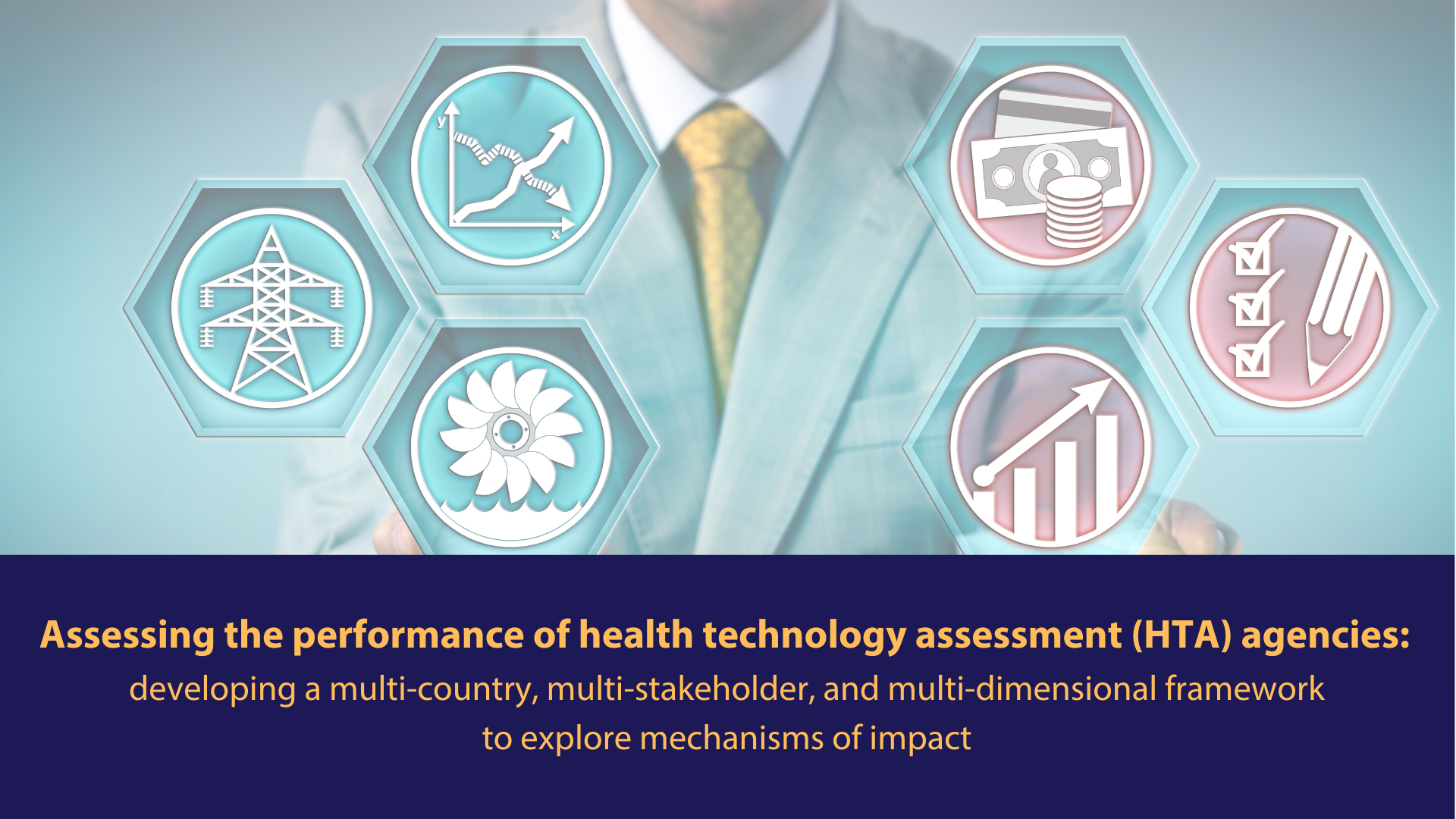Introducing a pioneering series on "Conducting health economic evaluations – the practicalities"
Series: Conducting health economic evaluations – the practicalities
The use of health economic evaluations is growing worldwide, yet the standard textbooks and training courses often don’t cover some of the practical aspects of conducting such analyses in a global health context. Given the limited capacity and expertise available to researchers, particularly in low- and middle- income countries, this series of open-access papers publish in peer-reviewed journals aims to fill this void. This series has been conceived by Dr. Hugo C Turner at Imperial College London and undertaken in collaboration with Prof Yot Teerawattananon and HITAP as well as other partners (including Prof Mark Jit).
The topics currently covered in this series are:
1. The main approaches to economic evaluations for informing priority setting and resource allocation in healthcare
2. Economic costs and their use in health economic studies
3. Adjusting for inflation and currency changes within health economic studies
4. The perspectives used in health economic analysis
Forthcoming topics include:
5. An introduction to costing and the types of costs used within health economic studies
Please get in touch with Hugo ([email protected]) if you have suggestions for topics or would like to be involved!
Topic 1: An introduction to the main types of economic evaluations used for informing priority setting and resource allocation in healthcare: key features, uses, and limitations
The economic evaluation of a health intervention involves the explicit comparison of the costs and consequences of the intervention of interest against those of the relevant comparator interventions. The methods (namely cost-effectiveness/cost-utility analyses, cost-benefit analyses) involved in producing appropriate, complete, and consistent analyses to provide economic evidence to inform health policies are well known in HICs. However, in the LMIC context, guidance for public health professionals who play a part in dictating such policies, regarding such methods and how to interpret their results, are lacking – despite their vital importance to decision-making for health.
Each method has its advantages and disadvantages – elaborated in this paper – making each preferable under certain conditions relating to the local context, the values and interests of stakeholders, the question being addressed, and the resources being considered for reallocation (i.e. either within the healthcare system specifically, or within the wider economy). Understanding the appropriateness of each method, as well as their technicalities in the LMIC context is an important step to improving global health outcomes and the lives of individuals.
Link to full article: http://www.gear4health.com/uploads/files/file-40-64b0b7646ebc2.pdf
Topic 2: What are economic costs and when should they be used in health economic studies?
Health economic evaluation requires choices to be made regarding the allocation of scare resources, informed by the benefits and costs of an intervention relative to its alternatives. Increasingly, clinicians and public health professionals are being required to provide evidence surrounding the costs of interventions to be used within health economic evaluations: economic costs. However, a lack of understanding about the differences between economic costs (ie. opportunity costs) as an economic concept and financial costs risks misinterpretation and inaccuracy within evaluations as well as inconsistencies across, where cost data has been provided by non-economists.
This paper seeks to explain and make distinct the differences between financial costs and economic costs, in both their definition, calculation, valuation, and use, as well as highlight the complications that occur in the LMIC context relative to the HIC; to enable non-economists within the health sector to be best informed on how to judge which cost type should be used under which context, objective, perspective and timeframe of relevant health economic evaluations.
Topic 3: Adjusting for inflation and
currency changes within health economic studies
Inflation is defined as when the same nominal quantity of currency buys less in terms of a fixed basket of goods and services. Therefore, when using cost data, or comparing cost and cost-effectiveness data from different studies or countries, from different years, it is important to adjust costs according to inflation to reflect the changing value of a currency over time. If this is not done within economic evaluations for health, then it will be difficult to determine whether changes in the costs of an intervention of interest over time are due to real changes in the value of the resources being used or rather changes in the value of the currency used to buy them.
However, especially within the LMIC context where there are further complexities surrounding the management of cost data, there is a lack of clear guidance on methods to adjust for inflation within health economic evaluations. This paper seeks to explain the different methods to adjust costs for inflation, and how the appropriate choice of the measure of inflation, output currency and adjustment method can vary according to the specific context and aims of a study.
Topic 4: An overview of the perspectives used in health economic evaluations
A perspective in health economic evaluations is defined as the ‘viewpoint’ that needs to be considered to identify the types of costs to be calculated in a study. Calculating the correct cost categories under the specified viewpoint is one of the key aspects of a health economic evaluation. However, there does not appear to be consensus on which perspective should be used in health economic evaluations. Further, in low-and-middle income countries (LMIC) where guidelines and data are sometimes unavailable, defining the perspective and determining the costs to be calculated can be a challenge.
This paper, which is part of a series of papers on health economic evaluations, provides comprehensive information on the different perspectives used in health economic evaluations derived from a review of studies and recommendations from multiple international and national guidelines listed in the International Society for Pharmacoeconomics and Outcomes Research (ISPOR) and the Guide to Economic Analysis and Research (GEAR) website. The perspectives discussed in the study are namely patient/household, health care payer, health care provider(s), healthcare sector, health system, and societal. Additionally, the study also discusses the different criteria and considerations when deciding on a perspective and provides examples with LMIC settings.
Link to full article: http://www.gear4health.com/uploads/files/file-42-64b0cadd672cb.zip
Stay tuned for future releases in this transformative series!
Prepared by Molly Paffett (contact: [email protected]) and Angela Judhia Arkandhi ([email protected])


